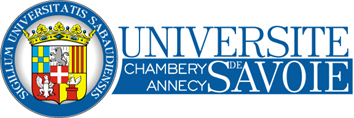Model-Driven Development of Multiagent Systems in Service-Oriented Architectures by Klaus Fischer and Arne-Jorgen Berre
There are two new trends in current software design: Service-Oriented Architectures (SOA) and the Model-Driven Architecture (MDA) proposed by the Object Management Group (OMG). These two threads of activity will significantly influence how software systems are specified and how the infrastructure, in which they perform, will look like. Agent technologies need to find their position in how far they can be integrated in such architectures. A fair chance for such an integration comes from efforts that try to specify how platform independent models for SOA might look like. However, the mapping between the platform independent models and agent-based models need to be defined. Based on the results of major research activities (ATHENA (http://www.athena-ip.org/), MODELWARE (http://www.modelware-ist.org/), and INTEROP (http://www.interop-noe.org/)) running in the European 6th Framework Program for Research and Technological Development (http://fp6.cordis.lu/) the course presents basic concepts of MDA and SOA and how agent technologies can be linked to such platform independent models by using techniques of the MDA approach.
The course presents basic concepts of Service-Oriented Architectures (SOA) and the Model-Driven Architecture (MDA) and relates the concepts of these architectures to agent technologies. Starting from the basic concepts a platform independent meta-model for SOAs is presented and it is demonstrated how the concepts of this meta-model can be mapped onto concepts in agent development platforms. The definition of these mappings is then used to define model transformations to transform platform independent models into platform specific models that can be directly executed in specific agent development environments. The tutorial is illustrated with practical examples and use of tools derived from ongoing project work in this area.
The tutorial is structured into 4 blocks:
- Motivation
- Interoperability problems in enterprise applications
- Proposed solutions to these problems
- Basic concepts of the model-driven architecture (MDA) and model-driven development of software systems
- Service-Oriented Architectures (SOA)
- Basic concepts of SOA
- Service descriptions
- Service composition, orchestration and choreography
- Platform independent models for service-oriented architectures (PIM4SOA)
- Modelling Agents in Multiagent Systems
- Models for individual agents
- Modelling at the multiagent system level
- Agent Meta-models and Model Transformations
- A meta-model for a specific agent development platform
- Definition of a mapping between the PIM4SOA and the agent meta-model
- Specification of model-to-model transformations
Tutor bio:
Klaus Fischer (German Research Center for Artificial Intelligence (DFKI) GmbH) is Research Fellow and Head of the Multiagent Systems research group at DFKI GmbH. He studied computer science at Technische Universität (TU) München and finished his doctoral degree at TU München with a thesis on Distributed and Cooperative Planning in a Flexible Manufacturing System in 1992. He then joined the Multiagent Systems Research Group at DFKI GmbH in Saarbrücken in the department of Deduction and Multiagent Systems headed by Prof. H. J. Siekmann and assumed the responsibility of group leader in November 1993. Since then he has managed a significant number of projects (basic as well as applied industrial research), organized workshops and conferences, and published some 70 scientific papers. For his achievements in research and for DFKI he was awarded DFKI Research Fellow in 2003. He serves in the program committees of several international conferences (e.g. AAMAS) and in the editorial board of international journals (e.g JAAMAS) and has a strong record in teaching lectures and tutorials at universities and international conferences. He was a member of the steering committee of the German Special Interest Group on Distributed AI from 1993 to 2000 and spokesman of this group from 1995 to 2000. He was a visiting research scientist at Yale University (1995), the Australian Artificial Intelligence Institute (1996), Melbourne University (2000), and the Royal Melbourne Institute of Technology (RMIT, 2001).
Sponsors for EASSS 06
 |
 |
 |

|
 |
 |